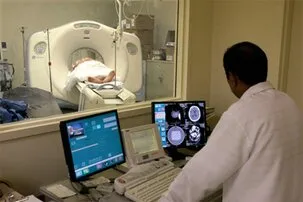A radiologic technologist, also known as a radiographer or x-ray technologist, is a healthcare professional who specializes in performing diagnostic imaging procedures. These procedures may include x-rays, CT scans, MRI scans, and mammograms, among others. Radiologic technologists are responsible for operating the imaging equipment, positioning patients correctly for optimal imaging results, and ensuring the safety and comfort of patients during the procedure.
In addition to operating the imaging equipment, radiologic technologists are also responsible for maintaining patient records, communicating with other healthcare professionals about their findings, and ensuring that the imaging equipment is properly maintained and functioning. They must also follow strict safety protocols to minimize the radiation exposure to both themselves and their patients.
Radiologic technologists work in various healthcare settings, including hospitals, clinics, imaging centers, and physician's offices. They often work closely with radiologists, who are physicians specializing in interpreting medical images, to ensure that high-quality images are obtained for accurate diagnoses.
To become a radiologic technologist, individuals must complete an accredited educational program, which typically includes a combination of classroom instruction and clinical training. Many programs lead to a bachelor's degree or an associate degree in radiologic technology. After completing their education, radiologic technologists must pass a certification exam to become licensed to practice in their state.
Overall, radiologic technologists play a crucial role in the healthcare system by providing valuable diagnostic imaging services that help physicians diagnose and treat various medical conditions. Their expertise and attention to detail are essential in ensuring that patients receive accurate and timely diagnoses.

